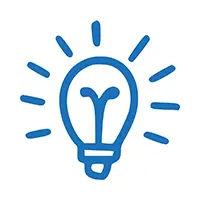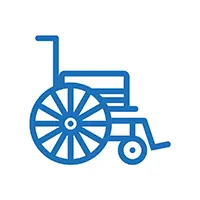Supported decision-making is an approach to decision-making that puts the person at the center. Sometimes a person is not able to communicate their choices or a doctor has said they are not 'legally capable' of making significant decisions.
Rather than 'substitute decision-making' where the support person makes all the decisions on behalf of a person through solely their own judgement, supportive decision-making follows the United Nations Convention on the Rights of Persons with Disabilities.
This states that a person has the right to their own will and preferences.
Article 12 states that all people have the right to make their own decisions and that if a person does need someone else to speak for them, this should be done properly. Disabled people have equal rights to own or be given property and to control their own money.
There can be lots of reasons why a person might need support to make decisions, it could be a learning disability, the impacts of neurodiversity, a communication impairment or due to mental health impacts.
There are lots of ways to support a person making their own decisions in a mana-enhancing way. Erika Butters of the Personal Advocacy and Safeguarding Adults Trust says there are seven steps to decision making. Simply taking a person through each of the steps can be enough to help them make their own decisions, small or huge!


If you're a trusted person wanting to provide supported decision-making for someone. Key things you should take into account include:
- Respect for autonomy: Supportive decision-making respects an individual's right to make choices and decisions, even when they may need assistance.
- Collaboration: It involves working with the individual to understand their preferences, values, and wishes. A preference bank is a great way to help guide you and others in this.
Check out the mahi of kiwi start up 'Volition'. They're developing a digital preference bank and more at the website My-Own-Volition (external link) - Communication: Effective communication is crucial to understand someone's needs, preferences, and limitations. It should involve using accessible and clear language and even alternative communication methods when necessary.
- Assessing capacity: It is important to assess the individual's decision-making capacity to determine the level of support required. This assessment is typically carried out by medical professionals who then pass their assessment on to legal authorities. Read more about this and the free service at Community Law New Zealand on the website Community Law (external link)
- Identifying support networks: Supportive decision-making may involve identifying family members, friends, or professionals who can help the individual in making decisions. Sometimes having a bit of distance from someone allows you to be a more neutral trusted person. It's important to consider how your own wishes are influencing someone's decisions against their will.
- Tailored support: The level and type of support provided should be tailored to the individual's specific needs and circumstances. This can range from simple assistance with understanding information to more complex decision-making arrangements.
- Safeguarding against undue influence: It's important to protect the individual from coercion or manipulation by ensuring that support is provided in the individual's best interests. This can be really challenging but identifying where you have conflicts of interest will reduce harm you may unintentionally cause and protect a person's rights.
The goals of supported decision-making is step closer to the Enabling Good Lives principles.
Enabling Good Lives principles page
By upholding the principles of autonomy, dignity, and respect while helping individuals make informed choices and decisions; you can ensure better life outcomes for all New Zealanders.
Learn more about the Personal Advocacy and Safeguarding Adults Trust at patrust.net.nz (external link)
You can also read more about supported decision-making at the website Ministry of Social Development (msd.govt.nz) (external link) and at the website Mental Health Foundation (mentalhealth.org.nz) (external link)
Learn more about Aotearoa New Zealand's commitment to the United Nations Convention on the Rights of Persons with Disabilities (external link)
Last updated on Monday, 13 November 2023













